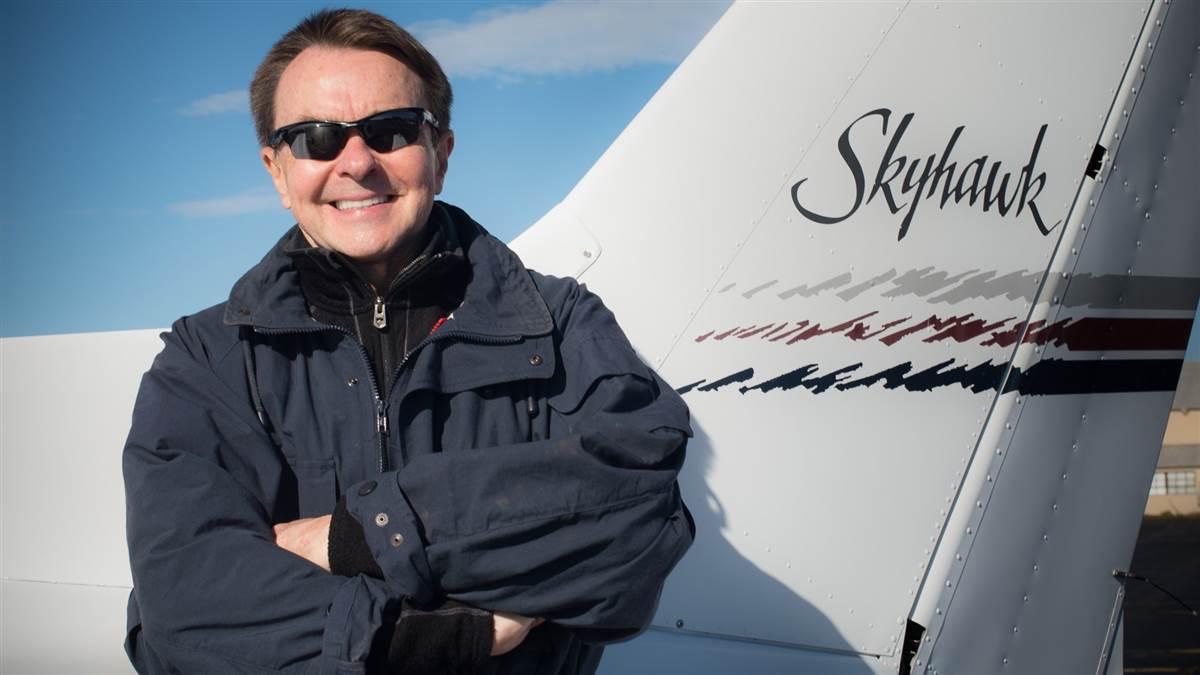Magazine Executive: Michael Clinton
Checking off the bucket list

When he was a kid, Michael Clinton’s family would drive to the local airport and watch airplanes take off and land. Then he took his first ride—he was 10—and Clinton became a kid obsessed.
The Civil Air Patrol was promising hours of flying search and rescue, so he put on the uniform and learned how to march. Soon Clinton realized that none of the hours of flying were happening. Marching was. And somehow flying slipped to the back burner.
Clinton has a busy life. He is the president of marketing and publishing director of Hearst Magazines, in charge of more than 20 titles, including Cosmopolitan, Popular Mechanics, and Esquire. He has run in marathons on all seven continents. He’s been to 123 countries and always returns with souvenirs.
Nearing his fortieth birthday, he had an epiphany. All his life he had wanted to do three things: Climb Mount Kilimanjaro, enroll in Skip Barber’s racing school, and take a flying lesson. He had done none of them. So he drove to East Hampton Airport in New York and talked to an instructor. “I made a pledge to myself that I was going to do this at my own comfortable pace,” he said.
There are few places better than East Hampton, Long Island, for learning to fly. Clinton flew his long cross-country to Hyannis, Massachusetts, and back, with a stop in Poughkeepsie, New York. He practiced touch and goes on Block Island, Rhode Island, and he took his checkride at the Westhampton, New York, airport. Now, almost 20 years later, Clinton has flown in places from Africa to the Pacific Northwest.
“I’ve learned that flying is a transferrable skill,” Clinton said. “When you’re flying, you’re doing all the things you have to do. Scan the sky, the instruments, cross-checking everything. There is a certain sense of focus, of discipline. If something goes wrong, to not panic. To have your wits about you, that sense of calm. In a chaotic business environment or a crisis situation, you have to have calm and be in control, and focus on solving the problem.”


